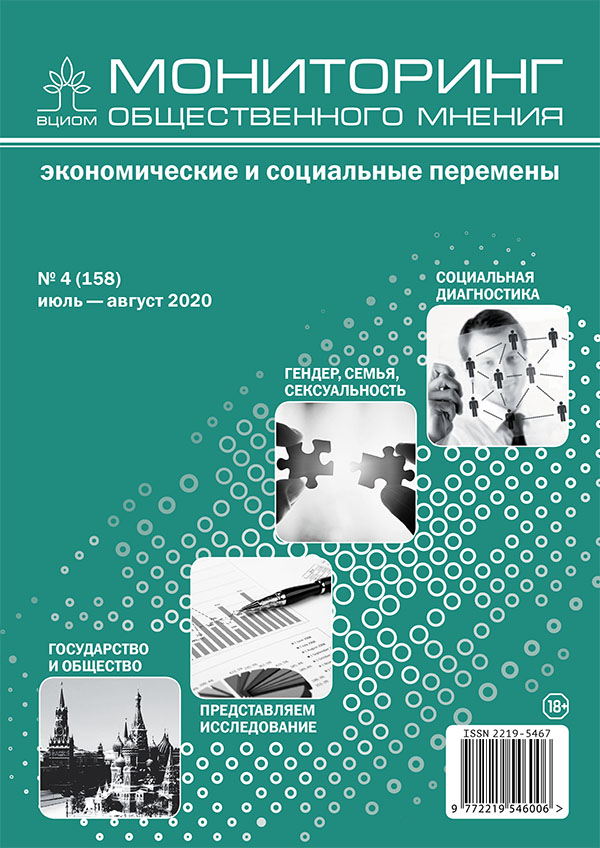Работа и учеба у студентов вузов: конфликт или фасилитация?
DOI:
https://doi.org/10.14515/monitoring.2020.4.928Ключевые слова:
совмещение учебы и работы, удовлетворенность обучением, успеваемость студентов, благополучие, студенты вузовАннотация
На основании данных опроса студентов одного из федеральных университетов Санкт-Петербурга (N=948) и полуструктурированных интервью c работающими студентами (N=14) исследуются условия, при которых совмещение обучения и работы студентами очных отделений вузов сопряжено с негативными последствиями для учебы и благополучия студентов, а также обстоятельства, при которых совмещение двух ролей, напротив, приносит пользу и повышает эффективность выполнения обоих ролей.
В результате исследования выявлено, что с большей вероятностью совмещают учебу и работу студенты, менее удовлетворенные получаемой специальностью и с более низкой субъективной оценкой благополучия внешней среды. В то же время уровень их психологического благополучия и социальной поддержки выше. Совмещающие обучение и трудовую деятельность студенты чаще пропускают занятия, однако это не сказывается на их успеваемости. Эффекты совмещения работы и учебы связаны с рядом факторов. Конфликт между двумя сферами более свойствен студентам младших курсов и девушками возрастает с увеличением рабочей нагрузки. Фасилитация работы и учебы более характерна для студентов, осознанно выбравших изучаемую специальность и трудоустроенных по получаемой профессии. В результате анализа полуструктурированных интервью были определены три группы стратегий совмещения: поддерживаемые работодателем, поддерживаемые системой обучения, и стратегии самоменеджмента учащегося.
Благодарность. Статья подготовлена при поддержке РФФИ, проект № 17-29-02438/17 «Психологические, социальные и средовые ресурсы здоровья учащихся разных ступеней образования в современной России», 2017-2019 гг.".
Загрузки
Опубликован
Как цитировать
Выпуск
Раздел
Лицензия
Copyright (c) 2020 Мониторинг общественного мнения: экономические и социальные перемены

Это произведение доступно по лицензии Creative Commons «Attribution-NonCommercial-ShareAlike» («Атрибуция — Некоммерческое использование — На тех же условиях») 4.0 Всемирная.






